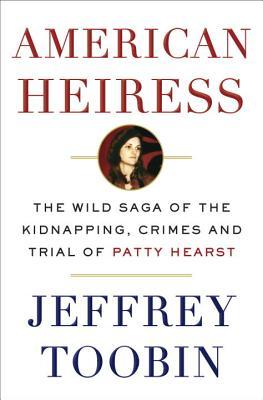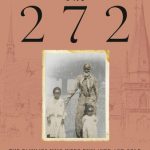 American Heiress: The Wild Saga of the Kidnapping, Crimes and Trial of Patty Hearst by Jeffrey Toobin
American Heiress: The Wild Saga of the Kidnapping, Crimes and Trial of Patty Hearst by Jeffrey Toobin Formats available: hardcover, paperback, ebook, audiobook
Pages: 368
Published by Doubleday on August 2nd 2016
Purchasing Info: Author's Website, Publisher's Website, Amazon, Barnes & Noble, Kobo, Bookshop.org
Goodreads
From New Yorker staff writer and bestselling author Jeffrey Toobin, the definitive account of the kidnapping and trial that defined an insane era in American history
On February 4, 1974, Patty Hearst, a senior in college and heiress to the Hearst family fortune, was kidnapped by a ragtag group of self-styled revolutionaries calling itself the Symbionese Liberation Army. The already sensational story took the first of many incredible twists on April 3, when the group released a tape of Patty saying she had joined the SLA and had adopted the nom de guerre "Tania."The weird turns of the tale are truly astonishing -- the Hearst family trying to secure Patty's release by feeding all the people of Oakland and San Francisco for free; the photographs capturing "Tania" wielding a machine gun during a bank robbery; a cast of characters including everyone from Bill Walton to the Black Panthers to Ronald Reagan to F. Lee Bailey; the largest police shoot-out in American history; the first breaking news event to be broadcast live on television stations across the country; Patty's year on the lam, running from authorities; and her circuslike trial, filled with theatrical courtroom confrontations and a dramatic last-minute reversal, after which the phrase "Stockholm syndrome" entered the lexicon. The saga of Patty Hearst highlighted a decade in which America seemed to be suffering a collective nervous breakdown. Based on more than a hundred interviews and thousands of previously secret documents, American Heiress thrillingly recounts the craziness of the times (there were an average of 1500 terrorist bombings a year in the early 1970s). Toobin portrays the lunacy of the half-baked radicals of the SLA and the toxic mix of sex, politics, and violence that swept up Patty Hearst; and recreates her melodramatic trial. American Heiress examines the life of a young woman who suffered an unimaginable trauma and then made the stunning decision to join her captors' crusade. Or did she?
My Review:
The past, as they say, is another country. They do things differently there.
1974 is definitely the past. Which is something which also feels unaccountably “wrong” at the same time. I was a junior in high school when Patty Hearst was kidnapped. And it seems like a life-time ago – only because it was.
 The story of Patty Hearst’s kidnapping, conversion, capture and conviction is so wildly improbably that it could only be fact. If someone tried to sell this saga as fiction, it would be rejected as too improbable to be believable. But it really happened.
The story of Patty Hearst’s kidnapping, conversion, capture and conviction is so wildly improbably that it could only be fact. If someone tried to sell this saga as fiction, it would be rejected as too improbable to be believable. But it really happened.
It’s a very wild ride.
One of the things that struck this reader is just how inept both sides of the equation were. The cops, notably the FBI, come off as much more Keystone Kops than clear-eyed Eliot Ness. It’s not just that they couldn’t catch a break, but that they often didn’t know what break to catch. In hindsight, there were all kinds of clues that weren’t followed up on. This didn’t have to go on nearly as long as it did.
Especially since the criminals were no more ept than the cops. As you read the story, it’s impossible not to be struck but just how often the SLA just got lucky. They may have planned their individual operations down to the details, but there was no overall plan and no major goal to be accomplished. They seem to have been living in a bubble of their own making. And it somehow kept working for them.
Until it didn’t.
The central figure in this story is Patty Hearst herself. So much hinges on figuring out what she really thought and felt. And that’s an unknown, and always has been.
It’s difficult not to put myself in her place. At 19, if someone kidnapped you at gunpoint and locked you in a closet, what would you think when weeks later they offered you the option of walking away or joining up? Would anyone actually believe that walking away was a real option? I keep coming back to that over and over. Expediency says to play along.
The questions, both at the time and now, come back to whether or not she truly believed in the revolutionary cause she ended up espousing. But even if she did, how can anyone say that she truly gave unforced consent to anything that happened? How free was she to choose? We’ll never know.
Which is probably how she managed to receive both clemency from President Jimmy Carter and a pardon from President Bill Clinton. In the end, with Patty controlling the narrative, everyone saw what they wanted to see.
Something that Patty Hearst seems to have been very, very good at playing.
Escape Rating A-: One of the things that this book does well is to set the stage. The 1970s are not that long ago, but they are also in some ways very far away. The optimism of the civil rights movement and the feminist movement had not yet faded into cynicism. At the same time, it was a completely crazy era, as the anti-war protests of the 1960s descended into revolutionary fervor and violence of all types. Including lots of bombings and home-grown terrorism.
The cops come off as almost completely inept. At the same time, the criminals were more lucky than smart. One of the things that the author makes clear, but is so hard to imagine today, is that there were no cell phones and no internet. Communication was slow and clumsy, coordination was incredibly difficult. Those are factors which made the criminals lives much easier, and the cops’ jobs much more difficult. Occasionally, that ineptitude feels like it drags the narrative down a bit. Because the bulk of the book is about Patty’s life on the run with the SLA, the length of time she remains free and the inability of the police and the FBI to find and apprehend her goes on and on, because in real life it did. However, I would have liked a bit more on the trial and its aftermath than is present in the book.
At the end of the book, the questions are still unanswered. Both the question of just how willing a participant Patty Hearst was in the later SLA criminal activities, and also just how much will did she have at that point? It’s ironic that the phrase that most often comes to mind in reference to her case, Stockholm Syndrome, wasn’t in use at the time of her trial because the Stockholm event itself had just occurred in 1973. Was she formally brainwashed? Based on the book, it seems doubtful. Not that the SLA might not have tried, but that they never seemed to have it that much together. Did she have Stockholm Syndrome? That seems much more plausible.
That the questions from the book continue to haunt me says something about the writing. This is a good story. It always has been. There’s a lot of drama, a certain amount of melodrama, and a fascinating use of a kind of sin and redemption trope, as Patty is taken from her good girl life, becomes an outlaw, and then reforms. It’s also a story about where the rich really are different from you and me. No one else in history has ever received both clemency and a pardon. Money still talks.
American Heiress is a compulsively readable account of an utterly fascinating riches to rags to riches story of crime, punishment and redemption.


















I have been looking for my next nonfiction read, and I think this has to be it. So fascinating! I like that you mentioned that the book leaves you with questions as to her motive — it’s disappointing when authors take a stance and write in what they believe happened rather than stick to what they KNOW. Sounds amazing and terrifying to read about — thanks for sharing!
Yes, I definitely remember all of this playing out in the news all those years ago, but I’m sure there’s a lot I don’t remember/know about the case. Frankly, I was always somewhat surprised about the hard line attitude about Hearst–the nature of the charges, and that she was convicted. Maybe money talks, but I always felt they made an extra effort to make an example of her precisely because of her family name. I don’t know if Toobin’s book would provide me with all the answers I’d be looking for, tho.
FYI–Did you know that Chris Hardwick (Nerdist) is married to Hearst’s daughter. What a strange, small world, eh?
It’s a teeny, tiny world. The book does get into the atmosphere in the US at that time, which factors into why she was convicted. But the clemency AND the pardon? That seems like money talking.
Marlene Harris recently posted..Review: The Throwback Special by Chris Bachelder